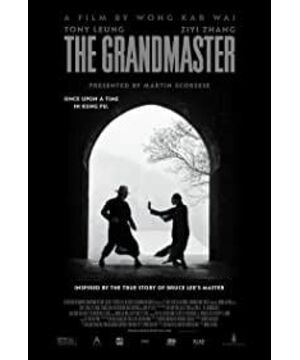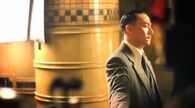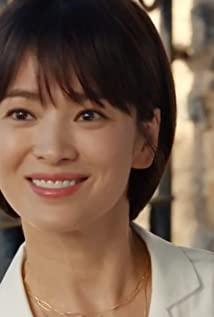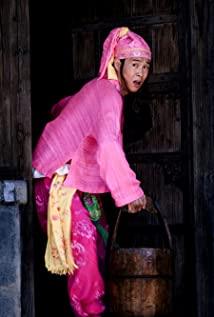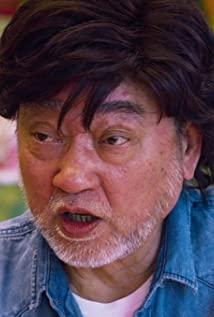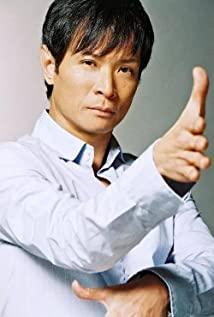If the audience is watching the heroic martial arts plot of a generation of martial arts masters (the title is too guiding the audience), they will shake their heads after coming out of the theater. In fact, Wong Kar Wai is talking about the history of martial arts in the Republic of China, and more about his grasp of the current situation and life. The so-called Times are ups and downs, life goes up and down.
Let's work with history to touch the context of the film together.
In the history of martial arts in the Republic of China, we first talk about the four major martial arts schools: Wing Chun, Xingyi, Bagua, and Baji. All of them are indispensable, so there is no shortage of a line of heaven, and it is not complete without it. It is definitely not a role that many media say can be deleted.
Wing Chun, Ye Wen, a disciple of Chen Huashun, represents the southern boxing style; Xingyi Bagua, Gong Yutian, prototype Gong Baotian, once hired as Guangxu's personal bodyguard and Fengjun martial arts instructor, Zhang Zuolin's bodyguard, with Ma Sanchang Xingyiquan, Gong Baotian Ruomei has Baguazhang (actually the sixty-four hands of the mysterious palace family are Baguazhang), with senior brother Ding Lianshan on it; Baji, the famous master of the Republic of China is Li Shuwen, who used to be the bodyguard of Xu Lanzhou (the same Heilongjiang warlord with Zhang Zuolin), and has three disciples under him. The eldest disciple Huo Diange was Puyi's bodyguard, Li Jianwu was Mao Zedong's guard, and the younger disciple Liu Yunqiao was Chiang Kai-shek's guard. Xingyi, Bagua and Baji are all styles of northern boxing. The Chinese Samurai Association also represents the northern martial arts world. The Jingwu Sports Association was founded in Shanghai and basically represents the southern martial arts.
The first scene: From 1935 to 1936, on the eve of the full-scale Anti-Japanese War, Miya Haneda, as the head of Bagua, led his disciples south to Foshan. Guangdong is the territory of the warlord Chen Jitang, just before Chen Jitang launched the "Guangdong Incident" and the Guangxi clique to unite against Chiang Kai-shek and the Japanese, Gong Haneda, who had a great position in the Feng clique, was actually indirectly seeking support from his martial arts colleagues to support the Nanjing government, "Bao Sen did not want to be Hero, I want to create the current situation. Now this furnace needs this new firewood.", "Does boxing have a north and a south, and a country?", "In your eyes, this piece of cake is a martial arts, and to me it is a world .". It is by no means the domineering southbound in traditional martial arts stories, trying to dominate me. This is combined with the history of warlords fighting in the Republic of China and the invasion of powerful enemies outside, and the blurred image behind it is also a plaque with the word "Republic".
The second scene: In 1940, Ip Man avoided the countryside, Ma San turned to the Japanese, Miyada persuaded him to turn back and was killed, Gong Ruomei declared revenge and fought Ma San. Needless to say, it is the history of the eight-year war of resistance against family hatred.
The third scene: In 1950, Ip Man went to Hong Kong, Gong Ruomei went to Hong Kong in 1952, and Tianyitian also went to Hong Kong to open an account. It's the history of the Civil War. Why did Ip Man come to Hong Kong alone and didn't turn back after him? In fact, looking at Ye Wen's life, after the victory of the Anti-Japanese War, he worked in the criminal unit of the county government. He successively served as the captain of the criminal police team of the Foshan police station, and was promoted to inspector general and acting director. Yixiantian is a figure who broke away from the Kuomintang military system, and Gong Ruomei is a descendant of a big figure in the Feng Dynasty warlord, so it makes sense to escape into Hong Kong.
Following the context, let's take a look at the ups and downs of the characters.
Ip man. "If there are four seasons in life, before the age of forty, my life is all spring." The eight years of the Anti-Japanese War was the winter of Ye Wen's life, but what about his summer and autumn? According to the Chinese official standard thinking, the period of civil war was barely his short summer to do things. But the vigorous growth in summer must be harvested in autumn. It should be the autumn of Ip Man in Hong Kong, and the door is open to accept disciples, and it is finally the world of peach and plum.
Miya Haneda. The prototype Gong Baotian is a large-scale character. The second-generation heads of Bagua Gate masters Dong Haichuan and Yin Fu, who served as the head of the palace guards, and were appointed as the fourth-grade guards with swords, responsible for the personal safety of Cixi and Emperor Guangxu. In 1900, during the Gengzi Incident, Gong Baotian protected Cixi and Emperor Guangxu from Beijing and escorted them to Xi'an. Fengjun Zhang Zuolin invited Gong Baotian to serve as Fengjun's tour envoy to the three eastern provinces and Fengjun's chief coach, but he actually asked him to be his personal bodyguard. "I have never lost in martial arts, but I have lost a lot in terms of ideas." The believers also placed great emphasis on martial arts, and Masan was not humble enough to fight the southern martial arts master, and was immediately driven home. Deliberately using his own life to persuade Masan back to the shore, it can be said to be strict and loving. The daughter also has everything in advance. So yes, the scenery behind him is buried.
Gong Ruomei. "My father often said that people who practice martial arts have three stages: seeing themselves, seeing heaven and earth, and seeing sentient beings. I have seen myself, and I have seen heaven and earth, but unfortunately I can't see sentient beings." Let her come to Foshan, don't let her fight with Ye Wen, don't let her ask about favors and grievances, let her be a good doctor and don't ask about the affairs of the world. But Gong Er "doesn't plan for a lifetime, only for a moment." In the end, I can't jump the mountain of revenge. "Unfortunately, I just turned around."
Line day. The most important thing to say is this soy sauce man, everyone is guessing. I secretly thought that his prototype was Liu Yunqiao. Let’s talk about Liu’s resume first. Liu Yunqiao is a disciple of Li Shuwen, the representative of Bajiquan. He is proficient in Bajiquan, Tanglangquan, and Baguazhang. He studied Baguazhang from Gong Baotian for eight months, but did not formally apprentice. In 1936, he defeated Tokusaburo Ota, a kendo master of the Kwantung Army in Tianjin, and thus got the attention of the Kuomintang intelligence unit, who absorbed him as an intelligence officer and was responsible for the assassination. In the 26th year of the Republic of China (1937 AD), Liu Yunqiao applied for the seventh branch of the Huangpu Military Academy in Fengxiang, Shaanxi (the fifteenth period), and officially joined the army to serve the country. He went to Taihang Mountain to fight with the Japanese army and was injured many times. He was promoted to company, battalion and regiment commander due to merit. In the 29th year of the Republic of China (1940 AD), he was wounded and captured, and was held in the prisoner of war camp in Yuncheng, Shanxi. With his wit and martial arts, Liu Yunqiao escaped in the gap, swam across the Yellow River, and fled back to the rear. After that, he joined the intelligence unit and went deep behind enemy lines to assassinate many times. There were rumors that he was the legendary "Tianzi No. 1" and "Yangtze No. 1". In the 38th year of the Republic of China (1949 AD), he retreated to Taiwan with the Kuomintang government, and served in the Ministry of National Defense's Personnel Secretary's Office, the Joint Logistics Command and other departments. Many identities are in line with the plot of Tianxiantian (bajiquan master, injured in 1940, intelligence officer), and he studied art in Gong Baotian, which coincides with "there are still people in the Gong family". As for whether he is Gong Er's betrothed husband or not, it is difficult to find out.
Ding Lianshan. Writer Zhang Dachun said that Ding Lianshan was a ghostly figure. In 1915, he killed the Japanese ronin Bo Wugui, but Ding Lianshan had to go to the end of the world for this. He is the person in the arena who has the most insight into the ups and downs of the current situation and the advance and retreat of life. Therefore, "secret things are easy to do, clear things are difficult to achieve", he is Lizi, and Miyata is the face.
Named a generation of grandmasters, in fact, none of the four major sects have competed well in martial arts, and there is no one who is called the strongest. To understand, you can only make up the history.
View more about The Grandmaster reviews


